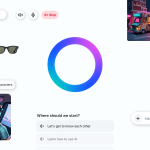
- AI Integration
- Smart Glasses
- Wearables
Meta Invests $3.5B in Ray-Ban Maker to Scale Smart Glasses
5 minute read

Meta’s $3.5 billion smart glasses investment accelerates production as Ray-Ban sales reach 2 million units worldwide
Key Takeaways
- Meta invests $3.5 billion for 3% stake in EssilorLuxottica, the world’s largest eyewear maker and parent company of Ray-Ban and Oakley, marking a significant escalation in the smart glasses race.
- Ray-Ban Meta smart glasses exceed 2 million units sold since late 2023 launch, with production scaling to 10 million units annually by 2026 amid robust demand.
- Advanced AR models planned for 2025-2026 include in-lens displays and continuous AI features, with a premium “Hypernova” model expected above $1,000.
Introduction
Meta Platforms has acquired a minority stake in EssilorLuxottica, investing $3.5 billion for nearly 3% of the world’s largest eyewear company. This strategic move represents Meta’s most significant financial commitment to smart glasses technology and positions the company to capitalize on the emerging AI-powered wearables market.
The investment builds on Meta’s existing partnership with EssilorLuxottica, which produces Ray-Ban and Oakley brands. Together, the companies have developed smart glasses that integrate cameras, AI assistants, and other connected features into fashionable eyewear frames.
Key Developments
Meta’s acquisition strengthens its position in the smart eyewear sector while maintaining minority investor status. According to Bloomberg, the company considers increasing its stake to around 5% pending further deliberations.
EssilorLuxottica reported 9.2% year-over-year revenue growth in Q4 2024, driven partly by Ray-Ban Meta smart glasses success. The current generation offers photo capture, messaging, calls, language translation, and Meta AI integration without full AR displays.
Production capabilities are expanding rapidly to meet demand. The companies plan to scale manufacturing from current levels to 10 million units annually by 2026, reflecting confidence in mainstream adoption potential.
Market Impact
The smart eyewear segment demonstrates strong growth momentum across related markets. Myopia management represents a $3.5 billion opportunity in the U.S. alone, while the global hearing aid market reaches $12 billion in value.
EssilorLuxottica’s expansion into health technology includes “Nuance Audio” hearing glasses, indicating convergence between consumer electronics and medical devices. This diversification strategy supports the company’s goal to consolidate eye-related products and services.
Ray-Ban Meta glasses have sold over 2 million units since launching in late 2023, establishing market traction for AI-enabled eyewear. The success validates consumer appetite for fashionable smart glasses that integrate seamlessly with daily activities.
Strategic Insights
Meta positions smart glasses as a gateway to its broader extended reality ecosystem, complementing existing VR Quest products and future AR ambitions. The strategy reflects CEO Mark Zuckerberg’s pivot toward artificial intelligence as a core growth driver.
The partnership combines Meta’s AI and software capabilities with EssilorLuxottica’s hardware expertise and established fashion brands. This collaboration creates unique competitive advantages in the emerging wearable technology market.
Advanced models planned for 2025 and 2026 will feature in-lens AR displays and continuous AI-powered capabilities including facial recognition and persistent background assistance. The premium “Hypernova” model targets consumers willing to pay above $1,000 for enhanced features.
Expert Opinions and Data
Industry analysts view the partnership as a long-term growth driver despite near-term development costs and technical challenges. The combination of Meta’s technology platform with EssilorLuxottica’s brand power creates distinctive market positioning.
EssilorLuxottica’s strategy involves expanding beyond traditional eyewear into tech-enabled products, hearing aids, and eyecare services. Company executives describe the vision as bringing “everything involving eyes under one roof.”
The investment signals broader industry belief that ambient, wearable AI may represent the next major platform shift beyond smartphones. This development pressures competitors including Apple, Samsung, and Google to accelerate their own AR and smart glasses initiatives.
Conclusion
Meta’s $3.5 billion investment in EssilorLuxottica represents a substantial bet on the convergence of AI, AR, and consumer eyewear. The partnership leverages complementary strengths to address the technical and market challenges facing smart glasses adoption.
The collaboration demonstrates how technology companies are partnering with established consumer brands to accelerate wearable device acceptance. Meta’s willingness to invest billions reflects both confidence in the technology’s potential and recognition of the long-term nature of this market opportunity.








